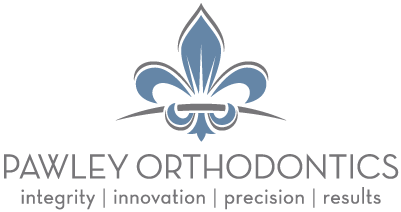Frequently Asked Questions
1. Why should I see an orthodontist?
Orthodontic treatment not only aligns your teeth but also ensures proper bite function and healthy jaw joints. Our team has the expertise to deliver the smile you desire with confidence.
2. Do I need a referral from my dentist to see an orthodontist?
No referral is necessary. Just give us a call, and we'll schedule your initial consultation. While some patients are referred by their family dentist, many others hear about us from friends and take the initiative to schedule their consultation independently.
3. When should my child visit an orthodontist?
The American Association of Orthodontists recommends an orthodontic screening at age 7. While most cases do not require treatment until all permanent teeth have erupted around age 12, there are situations where early intervention is advised.
4. Is there an age limit for braces?
It's never too late to achieve the smile you've always wanted.
5. Can teeth straighten naturally as you grow?
Teeth don't naturally straighten as you grow. In fact, the available space for front teeth often decreases with age, leading to crookedness in most cases. Timely orthodontic treatment can prevent future issues.
6. Will I need a tooth extraction for braces?
To achieve the best orthodontic results, occasionally, tooth extraction may be necessary. While we aim to minimize extractions, in certain cases, it is the most suitable treatment option.
7. How do I know if I need orthodontic treatment?
Orthodontic treatment can be indicated for various reasons, including improving the appearance, function, and health of your smile. Our doctors evaluate your bite and tooth positioning during the initial consultation, recommending treatment when necessary.
8. How much do braces cost?
Your orthodontic treatment is an affordable investment that truly pays off. The actual cost will depend upon various factors, including the complexity and severity of your problem and the required length of your treatment.
9. Does orthodontic treatment hurt?
There may be a little discomfort after adjustments. However, Tylenol or Advil can be taken to remedy any discomfort.
10. Why do I need braces if my teeth are straight but my bite is off?
Orthodontic treatment is for much more than just pretty teeth. A good, healthy bite may help eliminate other health problems in later years such as jaw pain, popping and clicking and/or headaches. It may also help save teeth from wearing down due to clenching and/or grinding.
11. How much longer do I have until I get my braces off?
We will let you know your estimated completion date, but if you miss or reschedule an appointment, forget to wear elastics, or fail to cooperate, your treatment will take longer.
12. How long do I have to wear my retainers?
The first year you will wear your retainers full time. Then you will graduate to nightwear. We tell our patients that retainers are a lifetime commitment.
13. Do I continue to see my dentist for regular visits during orthodontic treatment?
Yes. You'll be asked to continue seeing your general dentist for cleanings and exams at least twice a year.
14. How long is full orthodontic treatment?
Treatment generally lasts 18-30 months, depending on the doctor's recommendations.
15. How does orthodontic treatment work?
Orthodontic treatment utilizes braces or Invisalign, which exert gentle, continuous pressure to gradually reposition teeth into their correct alignment. This natural process allows the teeth to move over time.
16. How often are appointments required?
Patients are usually seen every 6-12 weeks, though this may vary depending on treatment progress. Most patients find it convenient to schedule appointments within their busy routines.
17. Should I visit my family dentist while in braces?
Yes, maintaining excellent oral hygiene is vital during orthodontic treatment. Regular dentist checkups and cleanings are crucial. Those struggling with oral hygiene may require more frequent dental visits.
18. Can braces interfere with sports or musical instruments?
Braces don't hinder sports participation, however we do recommend mouthguards for contact sports. Playing musical instruments may require a brief adjustment period for patients with braces, while wax on brackets can be helpful.
19. Are there food restrictions with braces?
Avoid hard, sticky, or overly sugary foods. These can damage braces, slow down progress, or bend wires. Sweet treats are acceptable as long as thorough brushing follows. Other than that, you’re good to go!
20. What happens when braces are removed?
Braces are removed swiftly, usually without discomfort. We then remove the adhesive, provide retainers, and you're ready to showcase your stunning smile!
21. What are retainers and why are they important?
Retainers maintain the results achieved with braces or Invisalign. There are various types of retainers, and wearing them is essential to preserve your smile as your teeth naturally change with age. We recommend wearing them indefinitely or as long as you wish to maintain your results.
